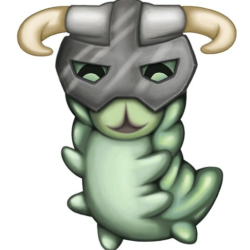I’m going to state this right up front – I am a brand ambassador for Big Potato Games, and that’s what has led me to write this blog post. I’ve been thinking about party games a lot more than I usually would (which would be at a party/gathering, I guess!).
I’m sure if you’re a fan of my content, you’ll know that I only engage in partnerships that I think work well for me and where I think the product is great, and I really do think Big Potato Games’ games are very good. But why? What makes a “good” party game? So let’s talk about it, in Big Potato and other publishers’ games!
- Suitable for large player counts – this is really one of the priorities for a party game. It needs to play well for a lot of people, or allow for people to work in pairs/teams. My personal favourite Big Potato Game is Herd Mentality, and there isn’t really a limit to how high it goes, player-count wise.
- Visually appealing components – okay so this is less important but it can really draw people in, especially if you’re trying to convince people who don’t play a lot of board games to join in.
 Herd Mentality really doesn’t *need* a pink foam cow or a cardboard paddock to hold it & the other score markers, but the fact that it does makes me kinda happy.
Herd Mentality really doesn’t *need* a pink foam cow or a cardboard paddock to hold it & the other score markers, but the fact that it does makes me kinda happy. - Easy to learn – for a party game, I think a really good rule of thumb is that explaining the rules should take less time than a turn or a round. It’s also nice if they can be summarised in a couple of sentences; e.g. “In Herd Immunity, everyone will have to answer a question, but they have to give the answer they think most people will give. If anyone is ever the only person to give an answer nobody else gives, they get the Pink Cow of Doom and can’t win. Plus we get to moo at people who are taking too long over their answers.” – the game might have a couple more rules than that but the summary is key to convincing people to get involved.
- Emphasize creativity over strategy – when you’re part of a big group, there’s music, people are drinking, players might be coming and going, it’s really hard to be strategic. Most successful party games emphasise moment-to-moment creativity, getting people talking and laughing, and generating stories to recount the next day – and it’s often this kind of introduction to gaming, with positive memories and funny tales, that can lead people to ask about your next game night and want to explore the hobby further. Or maybe they will just think fondly about the party, and that’s fine too.
- You can play fast and loose with the rules – I think this serves particularly well with scoring and how many rounds to play. For instance, Herd Mentality recommends playing until someone has 8 points, but we had so much fun that we kept going until it was time for bed. It also really helps games be welcoming and inclusive if you can use the mechanics but bin the whole idea of winners and losers and instead focus on the fun.
- It doesn’t matter if someone wants to join in or stop playing part way through – for me personally, this is really important for a party game. If the game loses all its structural integrity because one person wants to go get another drink and gets distracted in the kitchen, it might be worth reconsidering its place at your party. Likewise, if someone arrived late and can just get dealt in at the start of the next round, that’s a huge plus.
- Don’t take up a lot of space – I find that if we’re using a party game to finish up an evening spent on a heavier game, people are much more receptive if we can sit on sofas and armchairs rather than remain around the table. It can also help draw people in if they don’t want to sit at the table in the first place.
My favourite party games almost all meet all of those criteria, but always remember that it will depend on the group you’re playing with. For instance, there might be a key thing I’ve missed – I know some groups will only play party games with social deduction or hidden role elements, whereas I don’t like them personally.
Let me know if you agree in the comments, or chime in with anything you think I missed – and let me know your favourite party game. Mine’s Herd Mentality (could you tell?).
I really think the Big Potato Games range is excellent, fit most of my criteria, and comes from a fantastic company too. They are making moves away from including plastic in their games, they have a free parts replacement scheme, and their affiliate scheme is very generous. Speaking of, if you DM me on Twitter and ask nicely, I can give you a code to get 20% off their entire range, and I’ll get an affiliate fee. Win-win! Check out the entire Big Potato Games range here.
